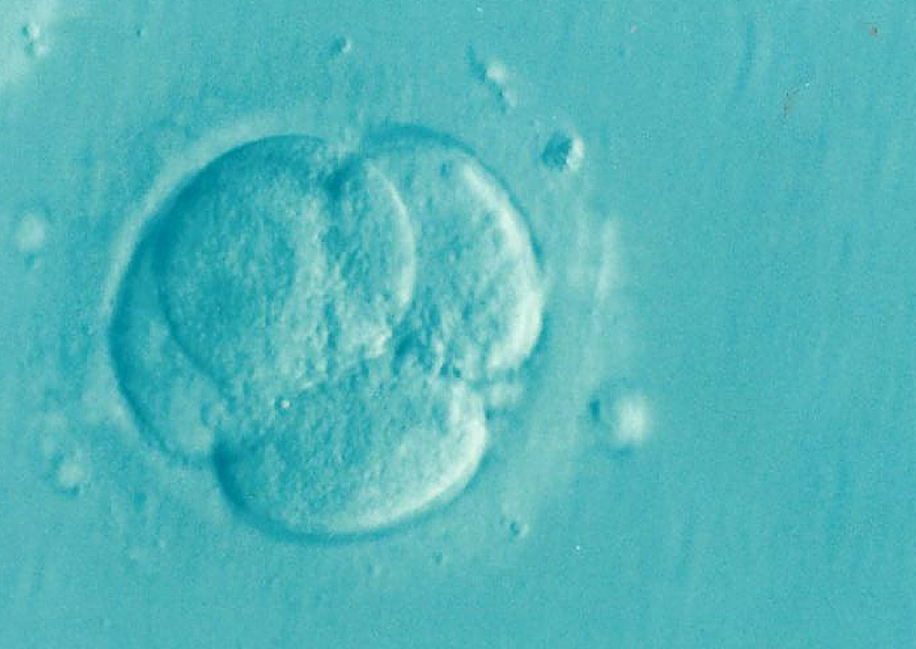
The developing baby
You do not even know that you are pregnant. This tiny blastocyst produces messengers that will send signals to your body to prevent your period starting.
Three different layers of cell develop and each type will create different parts of your baby’s body. The middle layer will become the skeleton and muscles, the heart and blood vessels, with the reproductive organs. The endoderm, gives rise to the respiratory and digestive systems including the liver, pancreas, stomach and bowel together with the urinary tract and bladder. Once a cell has been directed or programmed to have a specific function, it cannot change to become another type of cell.
By week five, the cluster of cells is just recognizable as an embryo. All the building blocks for your baby’s vital organs are already in place.
At four weeks, the embryo measures about 2mm, roughly the size of this dash -. By the end of this six-week period it will double to 4 mm in length.
By week six, the ball of cells has changed and resembles a tadpole. At the large head end, gill-like folds are visible, which will later become the face and jaw. The embryo’s heart bulges out of the mid portion of the body and by the sixth week it can be seen beating, or rather fluttering, on a vaginal ultrasound scan, although it is not always possible to see this if you have an abdominal ultrasound performed.
Your changing body
In the first six weeks of your pregnancy you will not look pregnant and you may not be feeling pregnant, yet your body is already undergoing major changes in response to a massive surge in pregnancy hormones that started immediately after conception.
Even when your period is not due for another seven days or so and you are unlikely to have realized that you are pregnant, several changes are taking place inside you. Your body is producing a flood of pregnancy hormones.
In particular the levels of oestrogen hormone are higher than normal to help thicken the uterine lining and provide a rich environment for the tiny implanting embryo. The hormones human chorionic gonadotrophin (HCG) and progesterone help to keep the embryo embedded, and progesterone also ensures that your cervical mucus thickens and forms a protective plug, which will seal the uterus off from vaginal infections for the duration of the pregnancy.
The overall size of your uterus is enlarging. When you are not pregnant, your uterus is roughly the size of a large plum, but during the source of your pregnancy it will expand to between 500 and 1,000 times its normal size.
By the end of the sixth week of pregnancy, it will be the size of an apple, and although you will not feel any change, a doctor examining you internally would be able to feel the difference. However, it will not be possible to feel the uterus through your abdominal wall until the end of this trimester, when it rises above the pelvic brim and enters the abdominal cavity.
How you may feel physically
Some women are so sensitive to changes in their body that they know they are pregnant even before their period is due, so you may know you are pregnant simply because you ‘feel pregnant’.
You will soon start to notice further changes in your breasts; they will feel heavier and look noticeably larger. Your nipples will continue to tingle, and you may see a change in the colour of the areola around the nipple, and the appearance of visible veins on the surface of your breasts. These changes are due to the high levels of estrogen that are needed to provide a nurturing environment for the embryo.
You may notice that you need to pass urine more frequently both day and night. This symptom usually continues until the end of the first trimester. The reasons for this are two-fold. First, the blood supply to the kidneys increases by about 30 percent and results in more blood being filtered, which produces more urine. Secondly, the enlarging uterus presses on the bladder, which effectively reduces the amount of urine that can be stored because the bladder is prompted to empty itself at an earlier stage.
Tiredness and a tendency to feel overemotional and tearful are common. These symptoms are entirely normal and merely reflect the fact that your body is dealing with a flood of pregnancy hormones to prepare it for the months ahead.
For many women a heightened awareness of smell is the first sign that suggests something has changed in their body and that they are pregnant. It is not just that smells are stronger, they are also different. Similarly, you may experience a strange metallic taste in your mouth, develop cravings for certain foods and find yourself unable to stomach some others.







